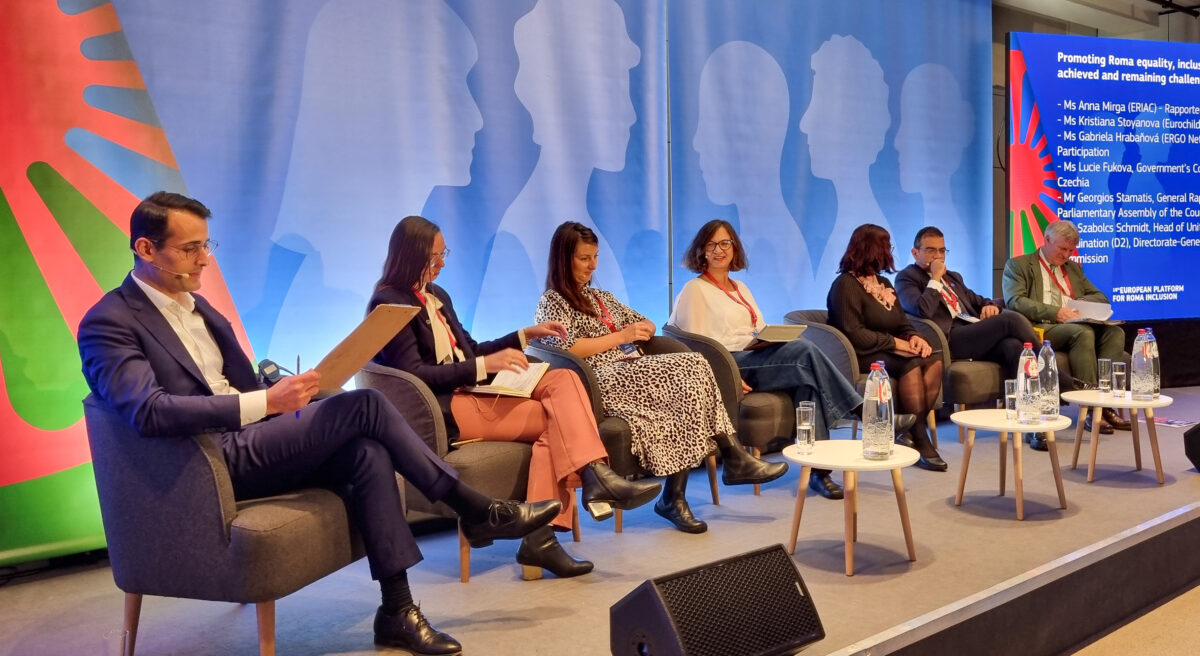Roma Platform 2025: Europe still talks recognition, but we demand Resources
At the 18th European Platform for Roma Inclusion in Brussels, our message from ERGO Network and the Roma civil society was clear: Recognition of antigypsyism is a progress, but it will mean little without resources, accountability and real political participation.
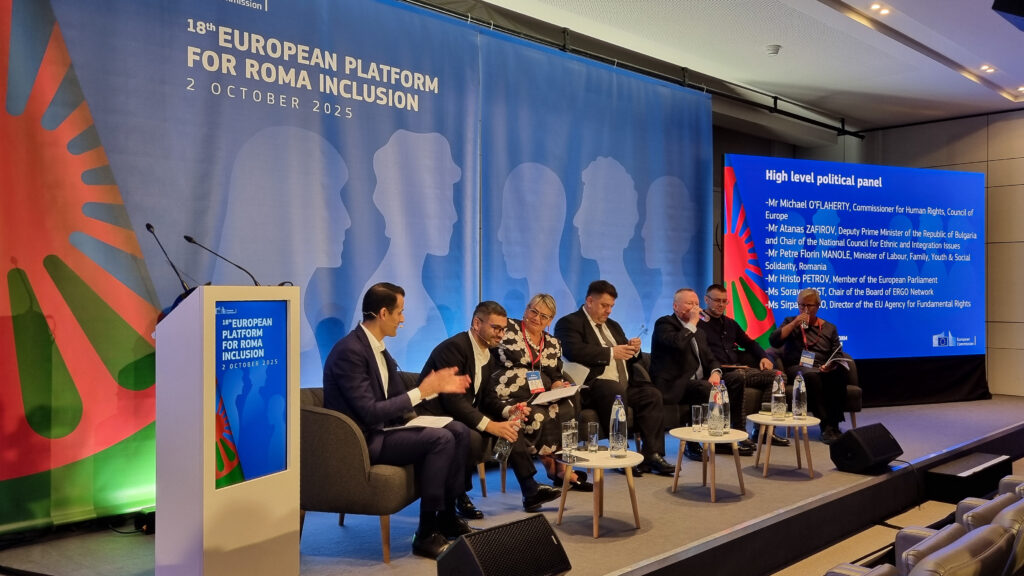
Rights, not charity
Speaking on the high-level panel, former MEP and current ERGO Network Chair Soraya Post welcomed how far Europe has come. For decades, Roma issues were framed as welfare or charity; today, at least on paper, they are recognised as fundamental rights.
“Roma inclusion is no longer treated as an act of charity — it is recognised as a matter of fundamental rights and political responsibility,” she told the audience. But she warned that “recognition without resources will not change people’s daily lives. The rights we have recognised must now be delivered — in schools, in health care, in jobs, and in every part of everyday life.”
Her call was clear: Roma participation in decision-making must become genuine, antigypsyism must be confronted and enforced against, and the next EU budget must include binding resources for Roma equality.
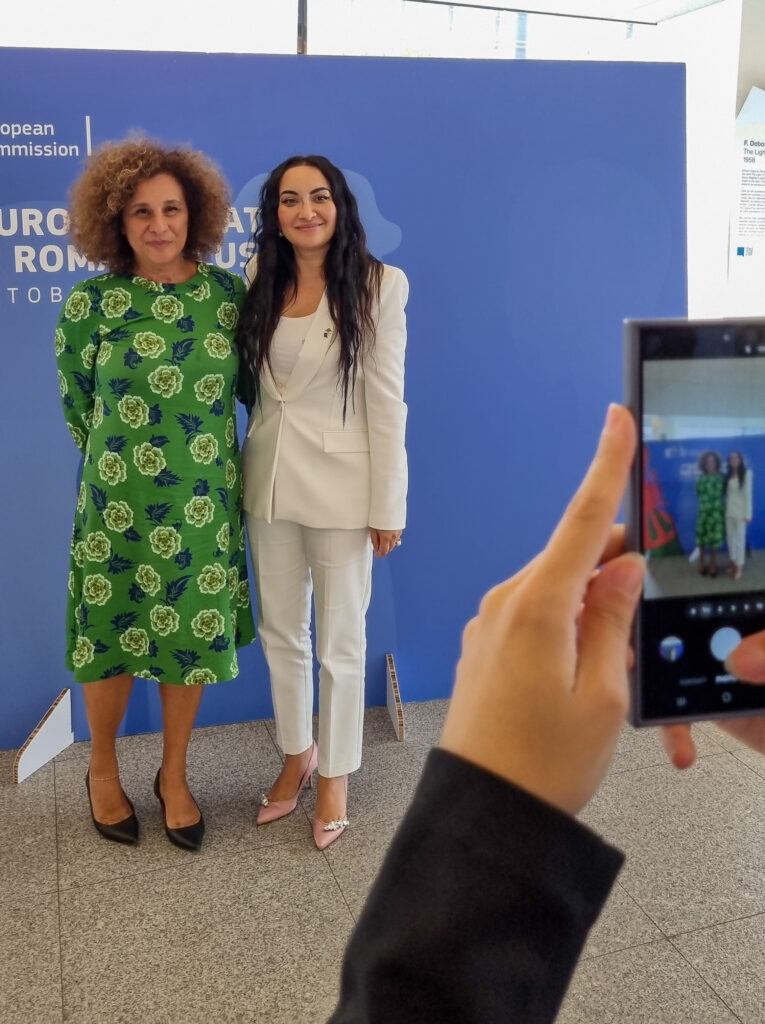
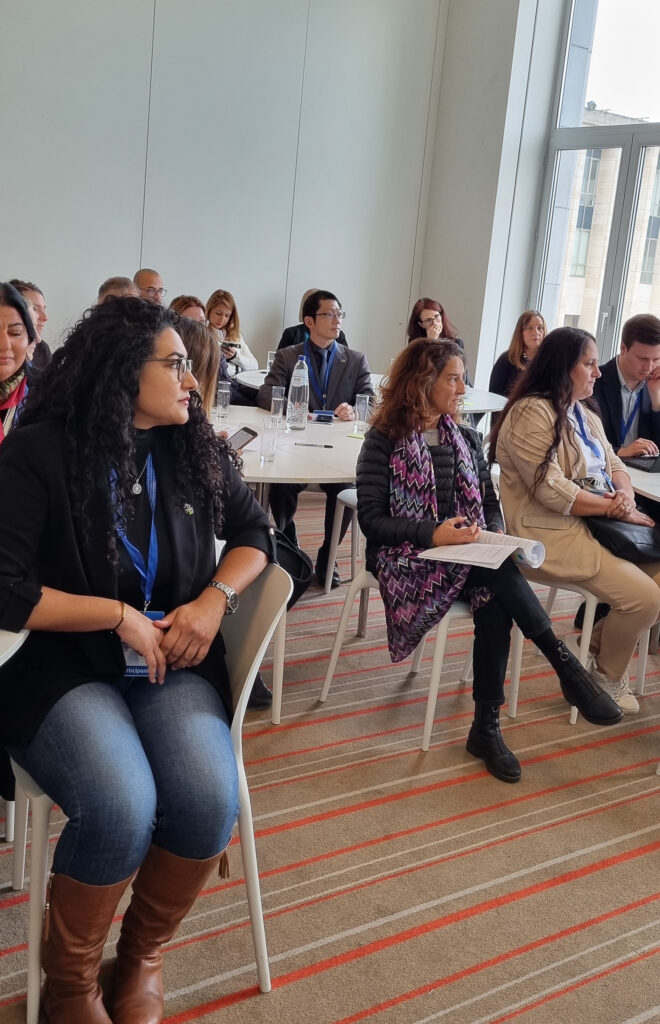
Invited to the end of dinner
Others echoed the frustration. Petre Florin Manole, Minister of Family, Youth and Equal Opportunities of Romania, insisted that cohesion funds must be protected, otherwise “Roma are invited to the end of the dinner, not to eat, but to clean up the mess.
Meanwhile, the EU Fundamental Rights Agency presented its most comprehensive survey yet: more than 10,000 Roma respondents across 1,000 locations, laying bare ongoing discrimination, poverty and exclusion. And Hristo Petrov, MEP, offered a challenge of his own: “True equality is when Roma are not confined only to Roma inclusion issues, but can be present in any other field, so we have the Roma perspective on them.”
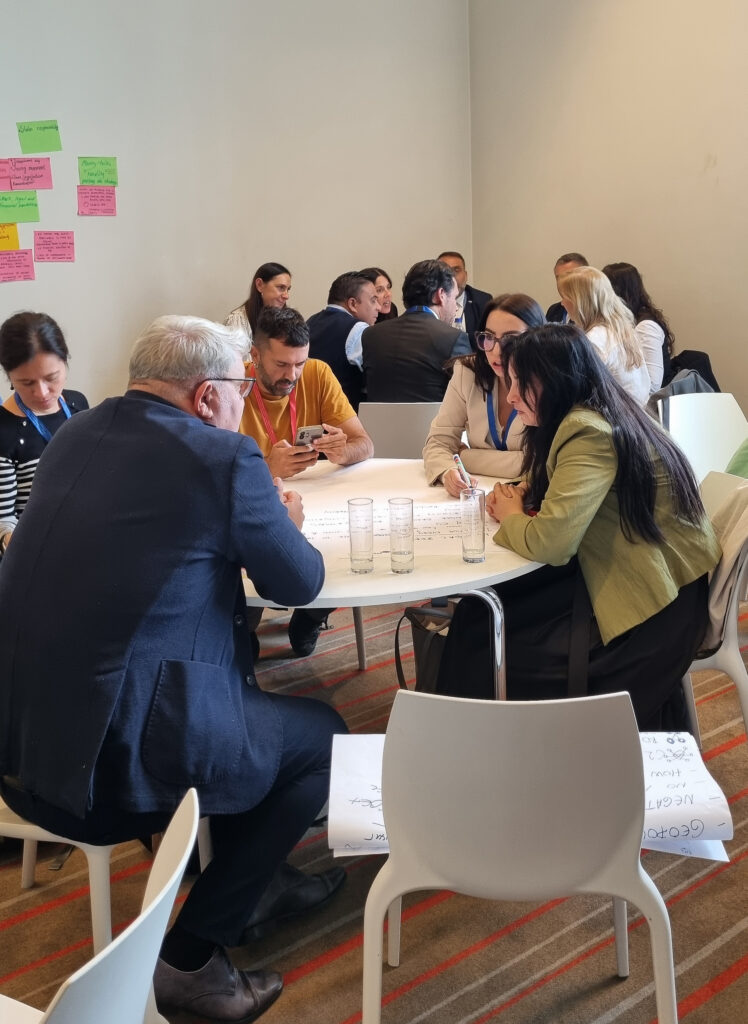
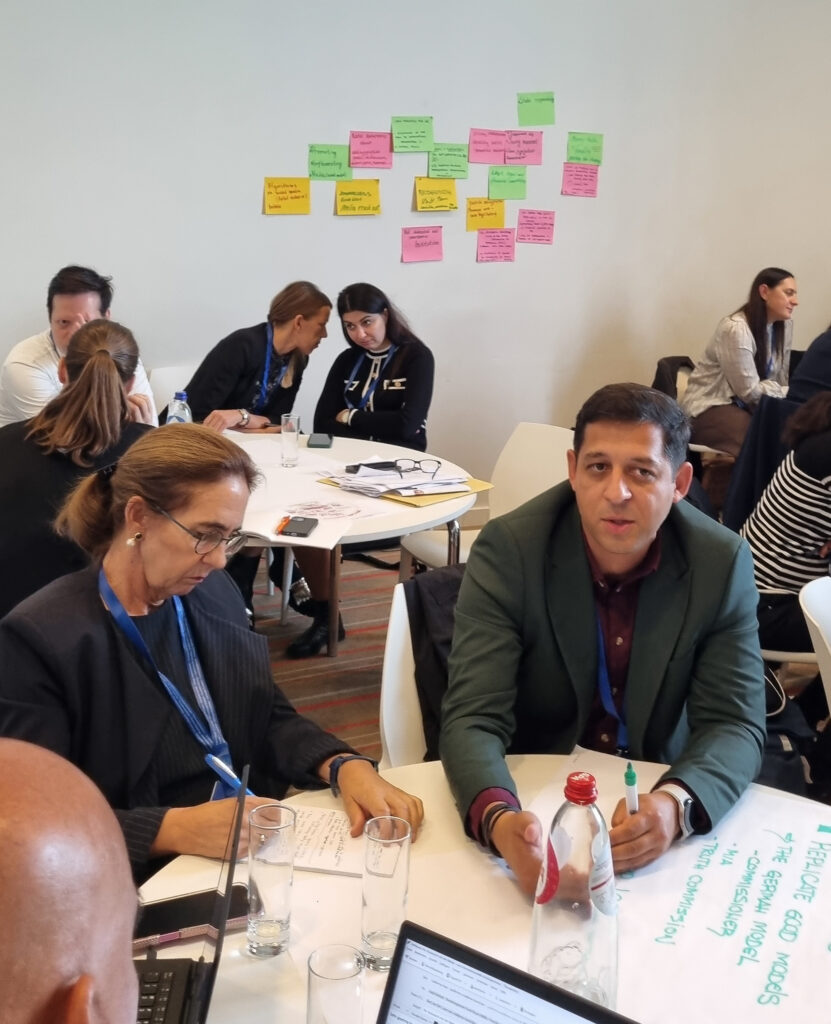
Participation as democracy’s test
ERGO Network co-facilitated a workshop on participation, moderated by our Director Gabriela Hrabaňová. The discussion underscored a growing sense that consultation alone is not enough. Advisory bodies without power, under-representation of Roma women and youth, and a lack of trust between institutions and communities keep participation symbolic rather than real.
Yet there were bright spots we have to build on for them to actually make a difference: Roma Political Schools and youth mentoring schemes, minority councils with decision-making power, and alliances with non-Roma organisations that lend weight and credibility.
The workshop set out four urgent priorities: to institutionalise Roma participation in real seats of power; to invest in leadership and trust-building; to bridge international commitments with local realities; and to make participation safe, inclusive and accountable.
For all the speeches and strategies, we left the Platform with a familiar feeling: National governments and EU institutions know the right words, but action lags behind. Recognition of antigypsyism is a milestone, but milestones alone do not change lives.
As Soraya Post concluded, the test is simple: “Roma communities have heard promises for generations. Now is the moment to prove that equality is not only written in EU and national documents — it is lived in everyday life.”

